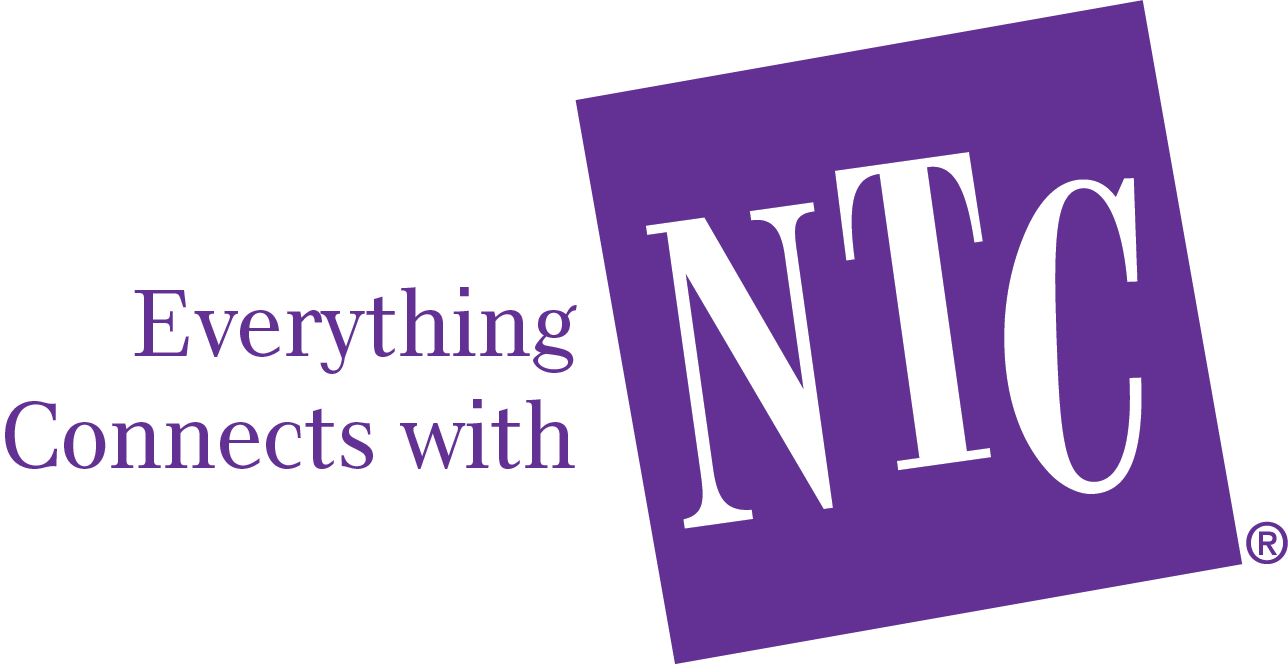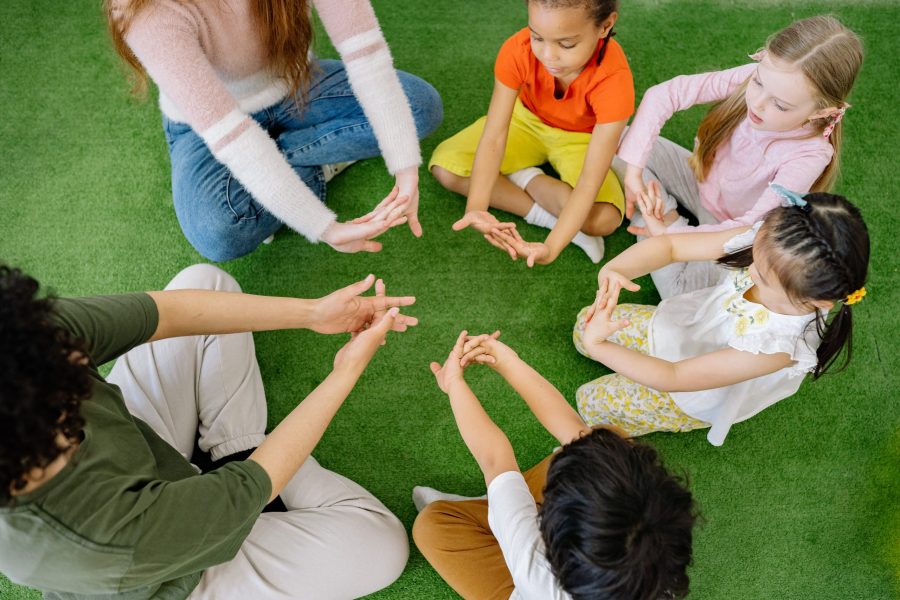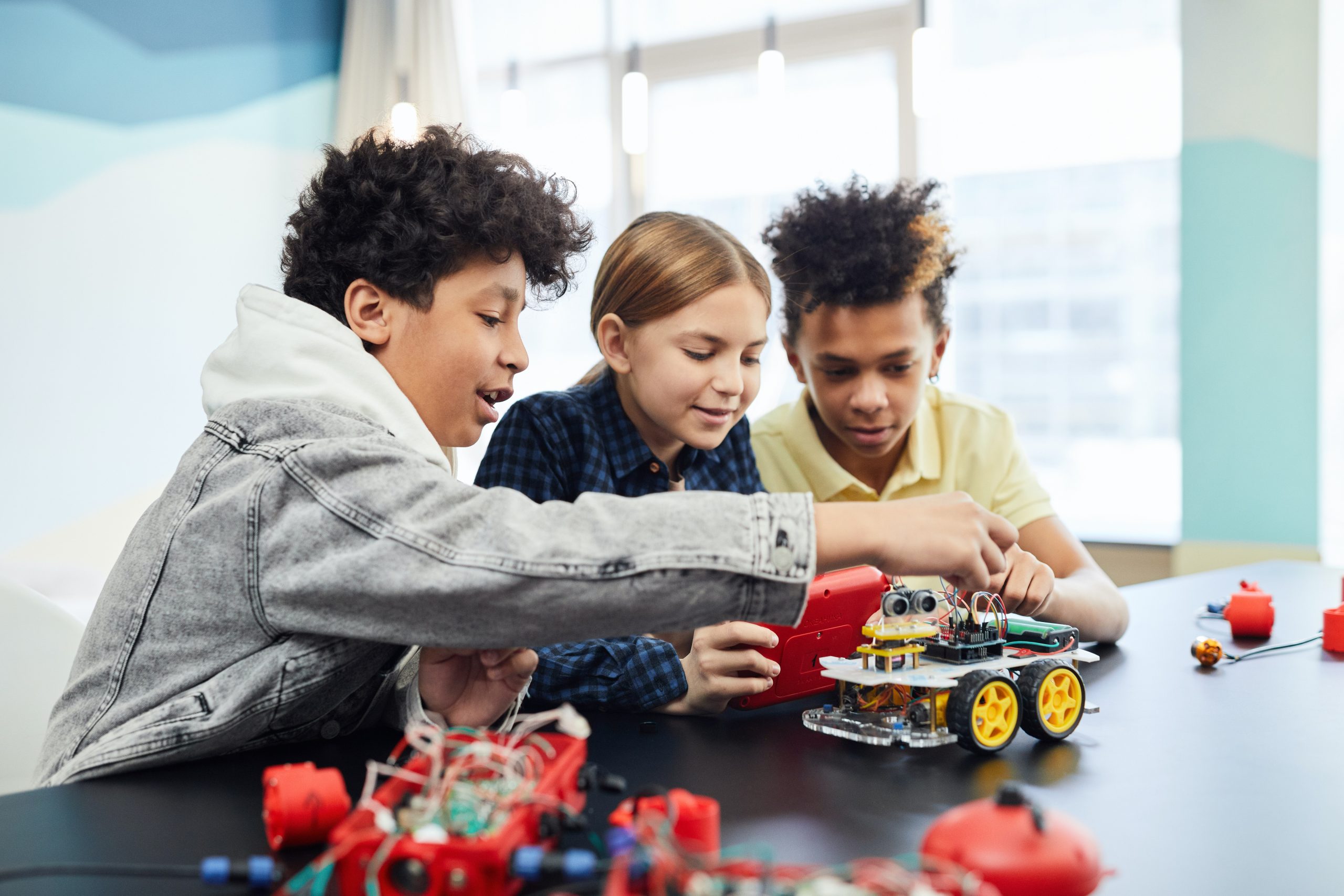Have you ever watched a concert or musical performance where one person is alone on stage singing a song? It seems like that person is on their own, but in reality, they are working with musicians, lighting and sound technicians, a director and a whole crew to make that performance happen. The same is true for every job in our society. No matter how much work one individual does, an entire group of people will have collaborated to secure an outcome. That’s a big reason learning about teamwork in school is important.
Learning about effective teamwork as a student helps the learner to be a more productive member of society no matter where the world takes them. It fosters an appreciation for the skills of others while helping the student understand their own strengths and areas that can be improved.
Why Should We Teach Teamwork?
Why is effective teamwork important in schools? When you get right down to it, why do students need to learn how to work as part of a team?
As a student progresses into “the real world,” they will need to work as part of a team in any job they find themselves in. From white collar to blue collar and everywhere in between, everyone needs to work alongside someone else to reach a common goal at some point in their life.
By focusing on teamwork in school, a learner is able to build an understanding of what it takes to be an effective team member—no matter their role in a team. They pick up important communication skills, collaborate on time management and experience the different ways other team members may approach a problem.
Working in a team also helps students develop empathy for one another. Young children especially can be self-centered. Putting students in diverse groups helps them understand that other perspectives have value.
Teamwork in classroom activities encourages students to assess their own strengths and weaknesses. Through putting students in different teams and giving them different tasks, the students are able to help each other improve their weaknesses while demonstrating their strengths.
Growth Mindset
Why is effective teamwork important in schools?
Teamwork in school encourages a growth mindset. The growth mindset is a term coined by Dr. Carolyn Dweck. It describes someone who believes that their skills and abilities can be developed and improved over time.
The opposite of a growth mindset is a fixed mindset. Someone with a fixed mindset believes that their abilities are fixed traits—that success is always due simply to talent and not effort. So how does teaching teamwork in the classroom affect student mindset?
Allowing students to work together can show those with fixed mindsets how much improvement is possible. When they see how a student with a growth mindset approaches a new challenge, that openness to improvement and effort can become contagious.
A student with a fixed mindset might look at a project and say, “I’m not good at this, so why even try?” But when you pair them with a student with a growth mindset, that student’s approach of saying, “What are you good at now? How can we apply those skills to this challenge?” can ease the first student’s mind and open them up to success.
Because sometimes a student just needs to see how effort and results can be interlinked to break down their fixed mindset. Working with someone whose approach differs from theirs can give them that perspective far better than an adult trying to explain it.
Encouraging Effective Teamwork in School
The next step is to focus on promoting teamwork and collaboration. Simply putting students into groups won’t necessarily generate the kind of teamwork that encourages the positive results we’ve looked at so far.
After all, it seems like everyone has a horror story about a group project in school where one or two people had to do all the work because another group member wouldn’t pull their weight. So how do we discourage this kind of group work and encourage effective teamwork?
Create Appropriate Tasks
The first step to teach teamwork effectively is to create a task that students will need other people to successfully complete. An assignment with multiple components and a timeframe that necessitates student collaboration is vital.
Teach the Value of Different Roles
One reason that group projects can fall short of success is that the learners in the group don’t understand the different roles that make up a successful team. In the same way that a sports team is made up of different players with different responsibilities, a team in the classroom must have members that recognize what they are supposed to do.
Roles in a team can most commonly be broken down into these categories:
- Team Leader: This person coordinates the team. If there is a need for work to be assigned to another member of the team, this person does the assigning.
- Team Spokesperson: This person keeps track of when the team has agreed to meet, what everyone has agreed to do, and ensures that the team effectively communicates.
- Quality Assurance: This person ensures tasks get done on time and are of sufficient quality.
In the classroom, each student will likely have to take on quality assurance. But it is important for student teams to understand the roles of leader and spokesperson. These roles help facilitate the work of the rest of the group.
Having student teams clearly identify the roles that each team member is taking is also a good first step towards establishing a code of conduct. Students are empowered when they create a set of rules that everyone must abide by. This also helps resolve potential disputes that may arise in the course of completing a project.
Do More than the Assignment
Effective team building is built on effective team bonding. This is true in the classroom as it is anywhere else. If students are only given a project to complete, they may miss out on learning this important aspect of collaboration. Playing a game or issuing a fun challenge can encourage group bonding before the group gets down to business.
Having a little fun can alter students’ perspective of their group too. It is important for everyone on a team to feel like they are a part of that team.
Self Evaluation
Self evaluation is as much of working on a team as completing the group project. Students require a method by which they can evaluate the effectiveness of their own work and their teamwork. Having a means to express how they felt they collaborated and if their team worked well together allows for this self reflection.
If one member of the team was an excellent leader by example, an evaluation lets their team extoll their virtues. If someone did not do what was asked of them, the team has a way to express this in their own words. Without feedback, a student cannot learn if they were an effective leader or an effective teammate.
Feedback can also help students identify the qualities of leadership that one can display from any role on the team—not just team leader. One of the great things about teamwork in school is that it can teach learners how to be a leader from any position on a team.
Diversify Teams
Everyone enjoys working with their friends and those they feel most comfortable with, but in an educational setting, it doesn’t always foster the most learning. It is important to have teams with different strengths and perspectives when learning how to collaborate. The more people each student has a chance to collaborate with, the more insights they can gain from their peers.
Embrace the Power of Teamwork
Teamwork quite literally powers society. Every job, every career and even every family structure will require some form of teamwork to find success. Teaching effective teamwork in school makes for more productive future members of society.
Encouraging students to appreciate and collaborate with diverse perspectives and work styles can help spur entire classrooms into growth mindsets. Every student can see what is possible when people work together.
But great teamwork doesn’t happen on its own. It must be taught, encouraged and fostered. With the right approach, the teamwork in school that students engage in can be an incredibly valuable experience.






